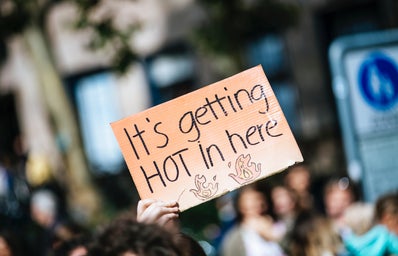World-renowned physicist Stephen Hawking, in his concluding address, declared,
“I don’t think we will survive another thousand years beyond escaping our fragile planet.”
Stephen Hawking
This statement, notable for its profound impact, necessitates a thorough examination of its veracity. Additionally, it is worth considering the practical challenges, such as the fact that the nearest Earth-like exoplanet, Proxima Centauri b, is located 4.26 light years away. Even with the fastest satellite currently available on our planet, the journey to reach it would take approximately 10,000 years, assuming we possess a system capable of refueling for such an extensive voyage.
Despite a century-long awareness of climate change and an extensive understanding of the scientific factors contributing to adverse effects on our ecosystem, humanity has regrettably failed to devise a comprehensive solution for the impending catastrophe. The ongoing debate among scientists revolves around the existential threat to Earth. While there is uncertainty about whether the planet is already doomed, there is a broad consensus that the current trajectory, heavily reliant on fossil fuels, will inevitably lead to the extinction of our species once the planet becomes uninhabitable. Various proposals to combat climate change advocate for increased utilization of green and renewable energy sources. However, skeptics often assert that these alternative energy forms may lead to widespread poverty, denying people access to affordable energy. Remarkably, these arguments often emanate from individuals financially invested in maintaining the status quo, as they accrue substantial profits from the existing energy business.
Indeed, coal, petroleum, and natural gas have facilitated a comfortable modern lifestyle. However, those advocating for their continued use seldom prioritize the well-being and progress of the common man; their primary focus lies in financial gains rather than the collective welfare of humanity.
The objective of this article is not to prescribe specific actions for the average reader to save the planet. As a common individual, there may be limited direct influence given that the global bottom 50% collectively emit an average of 1.4 tCO2e per year, contributing to 11.5% of the total. The middle 40%, with an average emission of 6.1 t, constitute 40.5% of the total. Meanwhile, the top 10% emit 28.7 t, representing 48% of the total, and the top 1% contributes 101 t, constituting 16.9% of the total. Understanding these statistics is crucial for spreading awareness and fostering hope that democratic systems will take meaningful steps to mitigate the impending environmental degradation. It is incumbent upon us, as stewards of humanity, to make concerted efforts to preserve our planet.
This preservation may entail prolonging the duration of human habitation on Earth or securing its longevity. Our species, evolving from insignificance 300,000 years ago to our current state on the brink of comprehending the fundamental laws governing the particles, is a testament to our remarkable journey. The discourse surrounding climate change is often marred by propaganda, with vested interests obscuring the truth due to the substantial wealth involved in the industry. Despite this challenge, it remains imperative that collective action is taken. Failure to address the issue would lead to the demise of humanity, the preeminent species on this planet, solely due to its own creations and insatiable greed—an outcome that we must diligently strive to avert at all costs.


